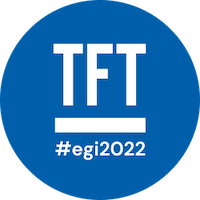Presentation materials
OpenID Connect (OIDC), an authentication protocol that allows users to be authenticated by an external trusted identity provider, is becoming the de-facto standard for modern Authentication and Authorisation Infrastructures (AAI). Although typically used for web-based applications, there is an increasing need for integrating shell-based services, such as Secure Shell (SSH), with federated...
In many scientific disciplines, expensive equipment is shared nowadays. The users – scientists, request specific experiments from facilities that perform them on their behalf. The outcome of such an experiment is a dataset, which can be quite huge in many cases. Our introduced system provides an easy way to make data produced by such specialized devices available to the scientific community....
Globus is a widely used platform for research data management among EU institutions. While many institutions have traditionally used Globus primarily for reliable file transfer, the platform has evolved to provide a comprehensive set of data management capabilities.
We will describe and demonstrate the major enhancements made over the past two years, and illustrate how new features and APIs...
Research data management (RDM) in line with the FAIR (Findable, Accessible, Interoperable and Reusable) data principles is increasingly becoming an important aspect of good scientific practice. In experimental disciplines, FAIR RDM is challenging because every step of the research process needs to be accurately documented, and data needs to be securely stored, backed up, and annotated with...
OSCAR is an open-source platform that supports serverless computing for event-driven data-processing applications. It abstracts away the deployment and management of computing resources through elastic Kubernetes clusters. Thanks to its integration with the Infrastructure Manager (IM), deployed as part of the European Open Science Cloud (EOSC), users can self-deploy these clusters on public...
The PaaS Orchestrator is one of the services available to research communities through the EOSC Marketplace: it allows access to distributed cloud compute and storage resources in a transparent and federated way. Users can easily deploy services without having to worry about where the resources are available and how to create and configure the resources they need: as a matter of fact, all...

